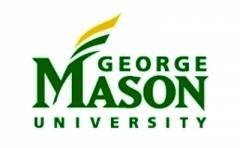Read more about our ranking methodology.
Fairfax, VA 22030-4444
* These statistics utilize the most recently released data from IPEDS (Integrated Postsecondary Education Data System)
Sources for school statistics and data include U.S. Department of Education's National Center for Education Statistics and the Integrated Postsecondary Education Data System. Data may vary depending on school and academic year.


- Law (LAW) - Professional schools
- Dietetics (DIET) - Coordinated Program in Dietetics
- Health Services Administration (HSA) - Graduate programs in health services administration
- Clinical Psychology (CLPSY) - PhD Doctoral programs
- Professional Psychology (IPSY) - Predoctoral internship programs (George Mason University Counseling and Psychological Services)
- Public Health (PHBG) - Baccalaureate and Graduate level school of public health
- Teacher Education (TED) - Baccalaureate and graduate programs for the preparation of teachers and other professional personnel for elementary and secondary schools
- Nursing (CNURED) - Nursing education programs at the baccalaureate degree levels
- Nursing (CNURED) - Nursing education programs at the graduate degree levels
- Nursing (CNDNP) - Nursing education programs at the doctorate degree levels
- English Language (Academic English Program/ Workplace English Program)
Source data obtained from U.S. Department of Education's Office of Post-secondary Education (OPE)

What letter grade would you give your school on how well it prepares students for a career in the real world?
Based on 6 ReviewsWhat letter grade would you give the students/culture at your school?
Based on 6 ReviewsWhat letter grade would you give the facilities at your school.
Based on 7 ReviewsWhat overall letter grade would you give the activities/groups at your school?
Based on 5 ReviewsThere are no questions and answers about George Mason University
